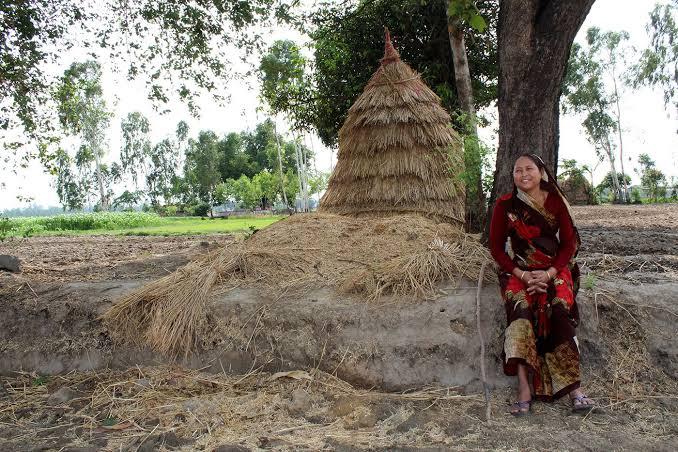‘Forest Department Pushing Tribal Land Claims Towards Rejection in UP’

Image for representational use only.Image Courtesy : RuralIndia
The Supreme Court order in February this year clearly stated that those forest dwellers whose claims have been rejected will be treated as “encroachers” on their own lands as they have failed to prove their rightful ownership and control over forest resources. However, in Uttar Pradesh’s Dudhwa National Park, the conflict between customary and statutory claims over forest resources is not new and goes beyond the recent Supreme Court order. Dudhwa National Park and Tiger Reserve is located on the Indo-Nepal border in the Palia and Nighasan tehsil of Lakhimpur-Kheri district.
The region which spans across 46 villages is largely occupied by the tribal Tharu community. The tribal community uses grass collected from the forests to make and repair their huts every year. However, with the rejection of the community resources claims in July 2019, the community is now alleging that the forest department is extorting money from the villagers and brazenly stopping them from collecting grass or using other forest resources. The struggle of the tribals is over three decades old.
The Uttar Pradesh government declared Dudhwa as a national park in 1978. Following this declaration people belonging to the Tharu tribe who were living inside the protected area had been denied their right to access natural resources such as wood, fruits and other means of livelihood making them encroachers in their own land. Forty four villages were relocated under the revenue status. In a long drawn movement and the achievement of the Forest Rights Act in 2006, the people finally got a legal tool to fight the land acquisition and eviction threats.
Also read: Tribals in Birbhum Rally to Stop Mine-for-Forest Swap Plan
In 2008, in a major victory for the people’s movement, Surma was recognised as a revenue village. However, the villagers claimed that they are still struggling with the recognition of their rights under the Forest Rights Act as the forest department and the police are becoming their biggest hurdles triggering anxieties on the ground over the loss of livelihood. Speaking to NewsClick, Rajnish Gambhir of the All India Union of Forest Working People (AIUFWP) said, “As the Supreme Court is still hearing the appeals of the tribals and forest dwellers, Tharu tribals are facing harassment and threat of not being able to access their own resources. The struggle of the Tharu tribals is a prime examples of the grave neglect of the forest department which is pushing the claims of the tribals towards the path of rejection.”
He explained that the power to reject the claims of the villagers lies primarily in the hands of the village level committees. So far the claims of over six hamlets for community resources have been rejected. Gambhir added, “Maximum claims that have been rejected are because of the failures of the administration. The forest department is emerging to be the biggest hurdles to the implementation of the Forest Rights Act.”
The Tharu tribals had filed claims in 2013, post which the Sub Divisional Level Committee (SDLC) recognised that these claims are worthy of rights and therefore, recognised the rights of the tribals. The claims were forwarded to the Forest Department, however, the department forwarded the people’s claims towards the path of rejection instead of helping the locals process their claims. the department appealed to the SDLC in the favour of rejection of the claims, terming the tribals as encroachers. In 2015, the files of the locals went missing from the administration. The local residents alongside the AIUFWP re-submitted duplicate files to ensure the recognition of the claims in 2016. However, this did not yield any results. With the aim to build pressure on the department. currently the cases are being fought by the All India Union of Forest Working People.
Amid the protests, the villagers have had to pay the bigger costs. There have been several cases which have been registered against the Tharu tribals. In April 2016, 75-year-old Bhanduram of Jayanagar village was arrested allegedly on false charges. He has now been released on bail. Many others like him are out on bail, but are unsure of what their future. Rajnish said, “Even with the legal provisions, what we want on the ground is the implementation of the Forest Rights Act, which makes the forest department a protector and not our enemy.”
Get the latest reports & analysis with people's perspective on Protests, movements & deep analytical videos, discussions of the current affairs in your Telegram app. Subscribe to NewsClick's Telegram channel & get Real-Time updates on stories, as they get published on our website.























